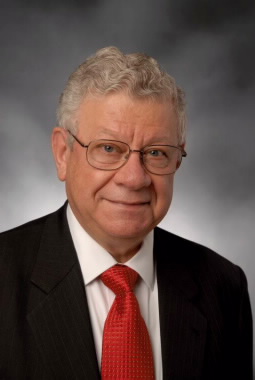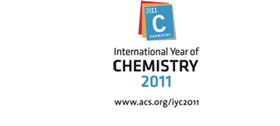FOR IMMEDIATE RELEASE | December 16, 2011
University of Wisconsin chemistry professor becomes president of world’s largest scientific society
WASHINGTON, Dec. 16, 2011 — Bassam Z. Shakhashiri, Ph.D., a chemistry professor at the University of Wisconsin-Madison, will become president of the American Chemical Society (ACS), the world’s largest scientific society, on January 1, 2012.
He was elected in 2010 to serve a three-year term on the board of directors as president-elect in 2011, president in 2012 and immediate past president in 2013.
Media Contact
Joan Coyle
202-872-6229
j_coyle@acs.org
Shakhashiri’ s presidential theme for 2012 is “Advancing Chemistry and Communicating Chemistry,” which captures his commitment to support basic research, education and innovation and to communicate the values and role of the chemical sciences to the general public. One of his major purposes of communicating chemistry is to showcase chemistry at its best in addressing significant human and societal issues. As part of that theme, he has four major priorities:
- Foster public understanding of the science of climate change. He has appointed a working group with the charge to develop a toolkit to equip ACS members with the information and other resources necessary to develop a clear structure that can be the basis for their discussions with others and, further, to identify strategies for ACS members to use the toolkit to disseminate climate science information to educators, business leaders and community organizations.
- Ensure graduate programs are preparing students for future careers that are critical to ensure U.S. prosperity. He has appointed a presidential commission to examine the purposes of graduate education and research in the chemical sciences and the needs and aspirations of graduate students and to identify steps to ensure that the needs of both students and society are met over the next 50 years.
- Increase the number of highly qualified high school chemistry teachers through fellowships for chemistry undergraduates that would enable them to receive training not only in chemistry but also in education. Upon graduation, they would teach in public schools for a period of three years.
- Celebrate the sesquicentennial of the Morrill Land Grant Act, which gave federal lands to states as a means to raise money to establish colleges that teach agriculture, science and engineering in addition to liberal arts. Shakhashiri sees this as an opportunity to showcase the accomplishments of chemists and chemistry through the years and to look ahead to how the ACS can help address global challenges in a world of finite resources.
Cited by the Encyclopedia Britannica as the “dean of lecture demonstrators in America,” Shakhashiri is passionate about the importance of chemistry and celebrating the fun of science. He is well-known internationally for his development and use of demonstrations to teach chemistry in classrooms, museums, convention centers, shopping malls and retirement homes.
Shakhashiri says, “Our biggest challenge today is to help sustain the Planet and its people in the face of population growth, finite resources, malnutrition, spreading disease, deadly violence, war, climate change and the denial of basic human rights, especially the right to benefit from scientific and technological progress.” He further says, “Science and society have essentially a social contract which enables great intellectual achievements, but comes with mutual expectations of benefiting the human condition and protecting the Planet.”
Shakhashiri received an A.B. from Boston University in 1960, an M.Sc. from the University of Maryland in 1965 and a Ph.D. from the University of Maryland in 1968. He is the first holder of the William T. Evjue Distinguished Chair for the Wisconsin Idea at the University of Wisconsin-Madison, where he has been a professor since 1970. In 1983, he was the founding director of the Institute for Chemical Education.
From 1984 to 1990, Shakhashiri served as the National Science Foundation assistant director for science and engineering education where he successfully worked to achieve a major expansion in the foundation’s education activities, as well as a ten-fold funding increase to over $230 million. His untiring efforts established recognition within the legislative and executive branches of the importance of STEM education to the nation’s future economic health – a recognition that continues to the present day.
An ACS member since 1962, Shakhashiri has won many honors and is an elected Fellow of numerous prestigious scientific organizations, including the New York Academy of Sciences, the American Association for the Advancement of Science and the American Chemical Society. In addition, Shakhashiri holds seven honorary doctorate degrees from institutions of higher learning. His more than 35 awards include the ACS Chemical Education Award in 1986, the National Science Board Public Service Award in 2007 for his extraordinary contributions to increase public understanding of science, the Helen M. Free Award for Public Outreach in 2005 and the 2002 American Association for the Advancement of Science Award for Public Understanding of Science and Technology. He has been cited for lifelong, tireless efforts to communicate science to the general public, especially to children; for explaining and demonstrating science with charisma and passion and for extraordinary contributions to promote science literacy and cultivate the intellectual and emotional links between science and the arts for the public.
Shakhashiri is a national and international consultant to government agencies, academic institutions, industry and private foundations on policy and practice matters related to science and education at all levels.
He resides in Madison with his wife, June. They have a daughter, Elizabeth, who practices law in Chicago.
To automatically receive news releases from the American Chemical Society contact newsroom@acs.org.
###



